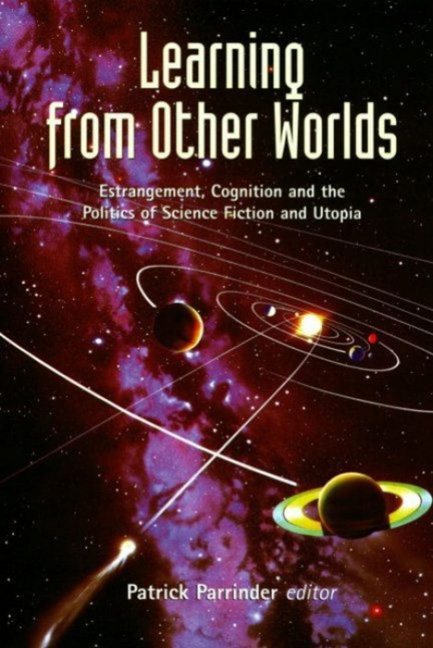Book contents
- Frontmatter
- Contents
- Acknowledgements
- Contributors
- Introduction: Learning from Other Worlds
- Part I Science Fiction and Utopia: Theory and Politics
- Before the Novum: The Prehistory of Science Fiction Criticism
- Revisiting Suvin's Poetics of Science Fiction
- ‘Look into the dark’: On Dystopia and the Novum
- Science Fiction and Utopia: A Historico-Philosophical Overview
- Society After the Revolution: The Blueprints for the Forthcoming Socialist Society published by the Leaders of the Second International
- Part II Science Fiction in its Social, Cultural and Philosophical Contexts
- Afterword: With Sober, Estranged Eyes
- Darko Suvin: Checklist of Printed Items that Concern Science Fiction (with Utopian Fiction or Utopianism, and a Few Bordering Items)
- Bibliography
- Index
‘Look into the dark’: On Dystopia and the Novum
from Part I - Science Fiction and Utopia: Theory and Politics
- Frontmatter
- Contents
- Acknowledgements
- Contributors
- Introduction: Learning from Other Worlds
- Part I Science Fiction and Utopia: Theory and Politics
- Before the Novum: The Prehistory of Science Fiction Criticism
- Revisiting Suvin's Poetics of Science Fiction
- ‘Look into the dark’: On Dystopia and the Novum
- Science Fiction and Utopia: A Historico-Philosophical Overview
- Society After the Revolution: The Blueprints for the Forthcoming Socialist Society published by the Leaders of the Second International
- Part II Science Fiction in its Social, Cultural and Philosophical Contexts
- Afterword: With Sober, Estranged Eyes
- Darko Suvin: Checklist of Printed Items that Concern Science Fiction (with Utopian Fiction or Utopianism, and a Few Bordering Items)
- Bibliography
- Index
Summary
The ray of light that reveals the whole to be untrue in all its moments is none other than utopia, the utopia of the whole truth, which is still to be realized.
T. W. AdornoLooking backwards from the end of the century, the political and intellectual milieu of the 1970s stands almost as an alternative reality, a moment in sharp contrast to our times. I don't evoke this difference to dwell in nostalgia— for there were problems and contradictions, arrogant shortcomings and enthusiastic errors, internal failure and external repression then as now. Nevertheless, at least from my own perspective within US culture, the spaces, and practices, of democratic opposition to the system of postwar capitalism and contending superpower bureaucracies were relatively more substantial, and occupied greater ‘liberated zones’ of praxis, before the ravages of counter-revolution in the 1980s. Within this larger ‘movement’, an array of intellectual and cultural activity took place across the social grid: from neighbourhood and organizational study groups, to local theatre companies, film societies, poster collectives, fan formations, festivals and rock bands, and on to new initiatives in the academy, critical and creative production flourished. In the universities the new work was broad, overlapping, and usually challenging to the academic structure and the social system. In an historic move, inter-, cross- and trans-disciplinary work in African-American, gay and lesbian, Third World, women's and other ‘Studies’ programmes emerged as the intellectual and pedagogical dimension of the political struggles for self-determination. Also, the elaboration and expansion of ‘theoretical’ work in the Left's ongoing critique of the status quo, and the struggle through and beyond it, took several directions. To name two specific examples in the USA: in Milwaukee, Madison and New York, attention was given to the critical theory of the Frankfurt School in the editorial collectives of the new journal New German Critique; and spreading out from San Diego, what came to be called ‘literary theory’ led to the formation of the Marxist Literary Group, its annual Summer Institute in Culture and Society, and later the journal Social Text. In addition, work in specific areas of cultural production took more solidly critical shape: this can be seen, for example, in the studies of film and popular music, and in paraliterature, especially science fiction and utopias.
- Type
- Chapter
- Information
- Learning from Other WorldsEstrangement, Cognition, and the Politics of Science Fiction and Utopia, pp. 51 - 71Publisher: Liverpool University PressPrint publication year: 2000



